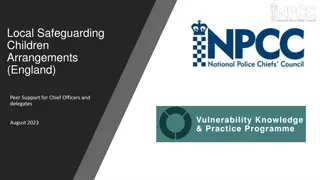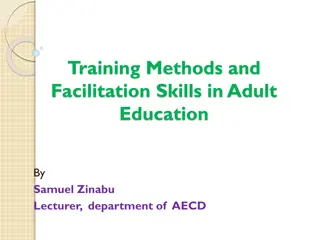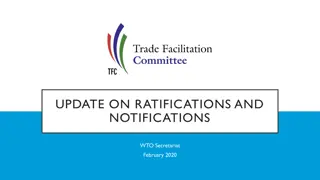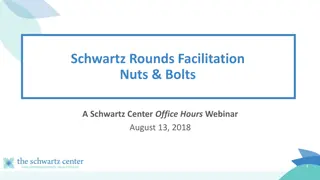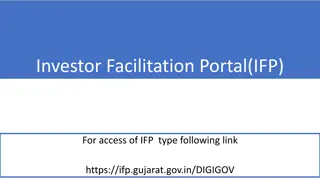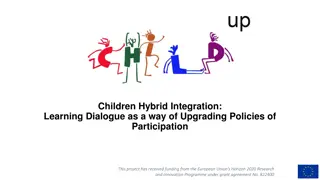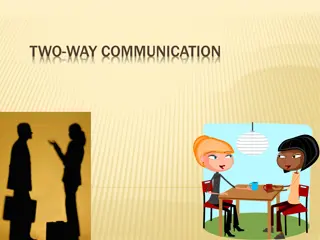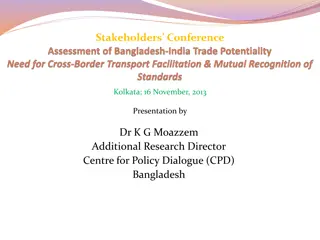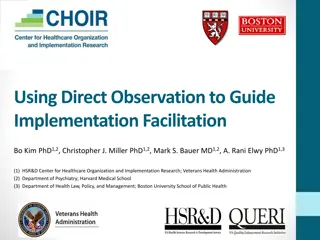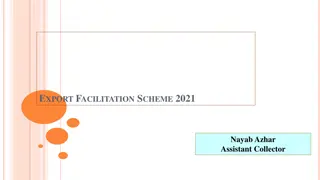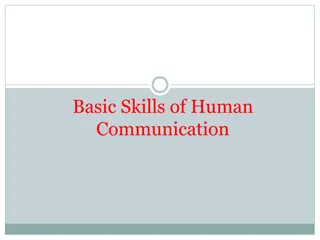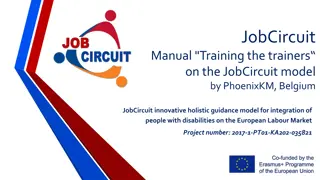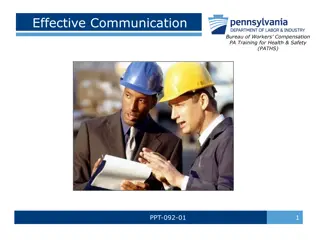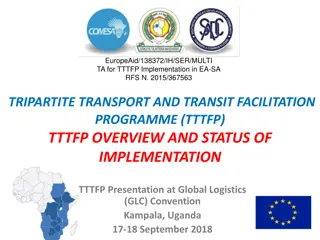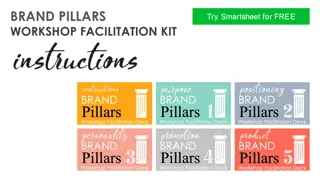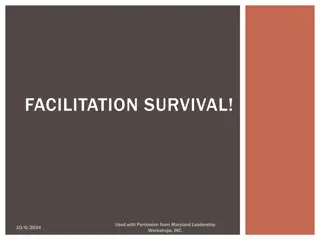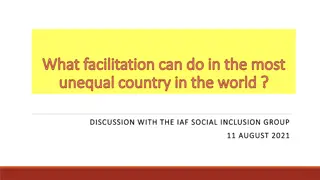Enhancing Communication and Facilitation Skills in Training
Explore the vital aspects of communication and facilitation skills in training sessions. Learn to effectively convey information, identify verbal and non-verbal cues, and foster interpersonal communication. Discover the role of a training facilitator in maximizing learning outcomes through tailored approaches and adult learning principles.
- Communication skills
- Facilitation techniques
- Training methodologies
- Verbal communication
- Interpersonal communication
Download Presentation

Please find below an Image/Link to download the presentation.
The content on the website is provided AS IS for your information and personal use only. It may not be sold, licensed, or shared on other websites without obtaining consent from the author. Download presentation by click this link. If you encounter any issues during the download, it is possible that the publisher has removed the file from their server.
E N D
Presentation Transcript
Communication and Facilitation Skills and Training methodologies
Objectives By the end of the session, the participants will be able to: Describe communication List the types of communication Identify the different verbal and non-verbal communications skills
What is communication??? The ability to convey information to another effectively and efficiently Trainer with good verbal, non-verbal communication skills help facilitate the sharing of information with the learners
What is important in communication Words? 7% Voice?? 38% Body Language??? 55%
Types of communications?? Verbal communication Non-Verbal communication Interpersonal communication
COMMUNICATION SKILLS COMMUNICATION SKILLS Verbal: Verbal: Use open and close-ended questions Always re-phrase your questions respectfully and politely Use language that learners understand well Ask one question at a time Keep your questions free of moral judgment Avoid using leading questions Involve the group 1 0 /
COMMUNICATION SKILLS COMMUNICATION SKILLS Non Non- -Verbal: Verbal: Maintain eye contact Practice active listening Maintain expression of enthusiasm Nod your head Smile if appropriate
Communication Skills Interpersonal: Communication between two persons where information is shared or learning takes place.
Training Facilitator Draws on the existing knowledge of the learners Facilitates learning where gaps in knowledge and skills are identified Uses adult learning principles during training, establishes existing knowledge, builds on it and keeps it relevant Facilitates learning and acts like a coach versus a lecturer
Good facilitation skills Have the required knowledge and skill on the subject to be trained Speak loud and clear with voice modulation to stress key information Use different training methodologies and training aids Move about in the room and engage the learners during the session Good time management
Good facilitation skills (contd.). Follow the agenda Maintain positive group dynamics Active listening including ability to paraphrase Encourage learners to participate and balance participation Respect learners and develop an environment of mutual respect in the group Assist the group in understanding the differences of opinion when a consensus cannot be reached
Training Methodology and Training Aids Training Methodology Training Aids Audio-visual aid-projector Flip chart and markers Black board/white board VIPP cards Videos PowerPoint presentations Interactive presentation Group discussion Case studies Group work Brainstorming Role plays Games
Jhpiegos Training Skill Course: ModCAL (Module based Computer Assisted Learning) ModCAL uses an interactive multimedia format to help learners become more effective trainers ModCAL provides knowledge updates, training skills demonstrations and exercises to develop training competencies. Key training resources, such as the Training Skills for Health Care Providers Reference Manual, Learner s Guide and Facilitator s Guide and PowerPoint presentations are provided in the resources section. 13
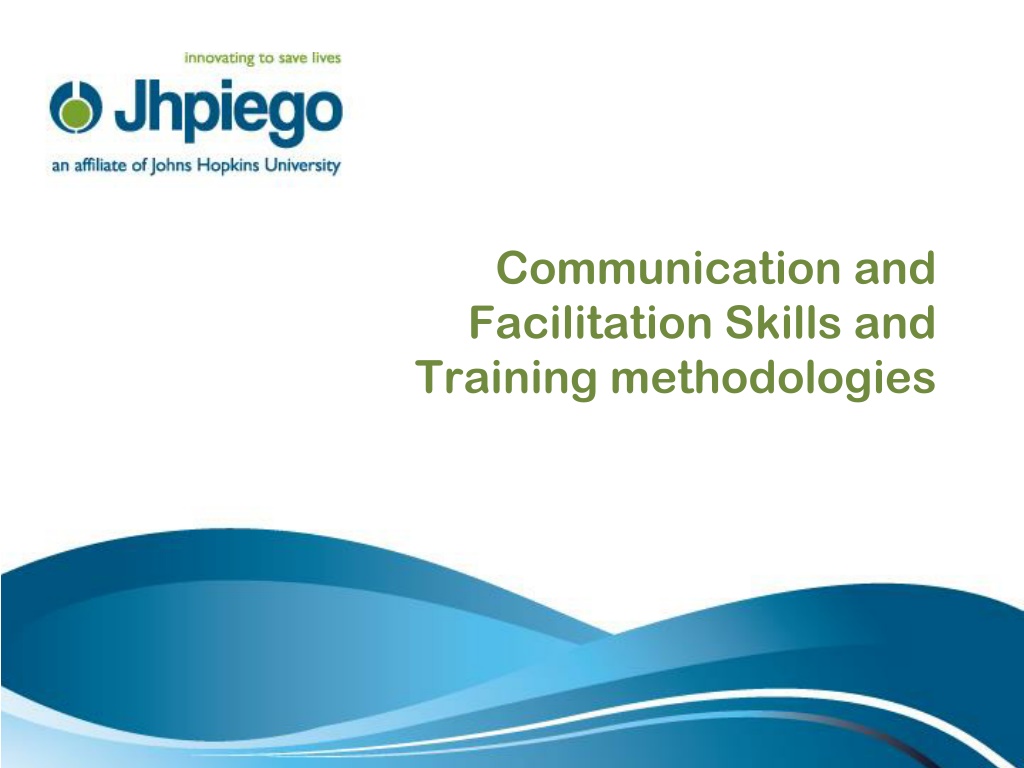
 undefined
undefined



